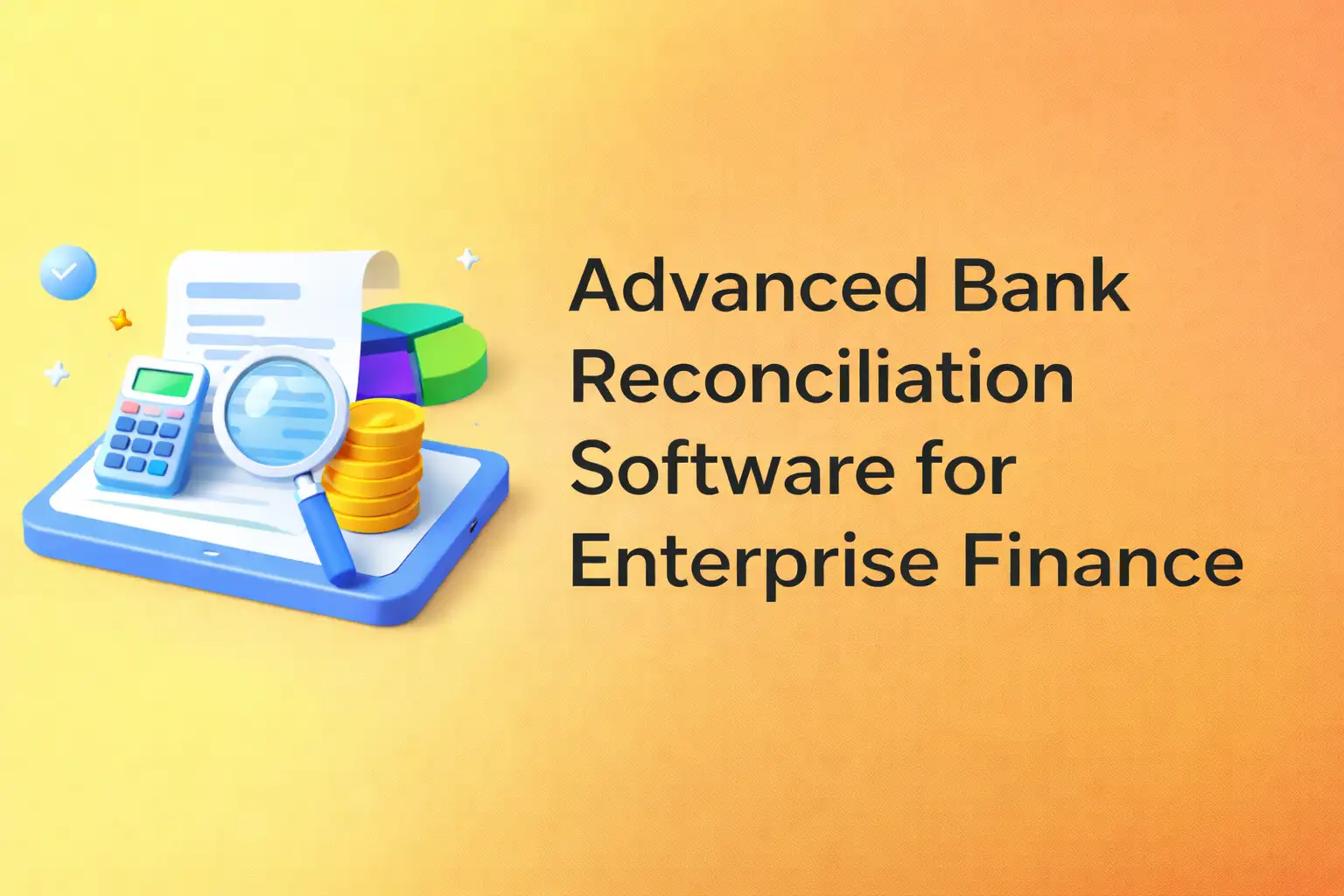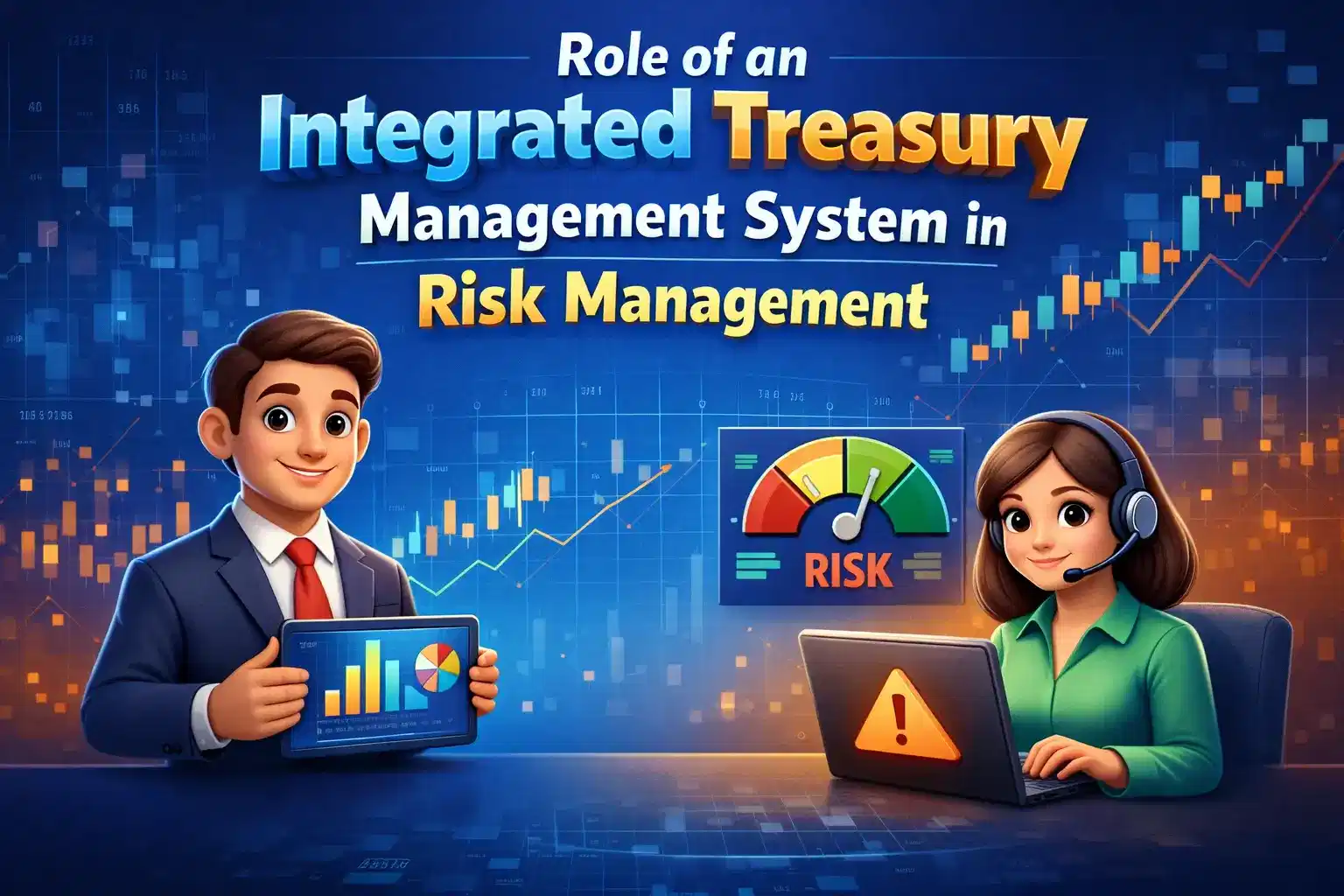The Role of Technology in Modernizing Intercompany Reconciliation and Financial Statements
Did you know that about 80% of global trade is made up of intercompany transactions? A United Nations report shows this is a big deal. It highlights the need for accurate financial statements and good reconciliation practices in today's fast world.
As companies deal with the challenges of intercompany transactions, technology's role is growing. It's key for making financial processes better. Companies using the latest tech can make their operations smoother and financial reports more accurate. This helps them stay in line and work more efficiently.
The Hackett Group found that bad intercompany accounting can cost over USD 1 million a year. This is for companies making USD 10 billion. It shows that making financial processes better is not just a choice; it's a must to stay ahead.
By using new technologies in their financial work, businesses can cut down on mistakes. This makes their financial health stronger.

Key Takeaways
- 80% of global trade involves intercompany transactions, necessitating accurate reconciliation.
- Modern technology enhances financial reporting accuracy, reducing possible errors.
- Automation can save companies in the range of USD 1-2 million annually.
- Highly automated processes can reduce labor needs by up to 75%.
- Unified data and automated reconciliations are priorities for 75% of finance professionals.
- Collaboration and automation are key trends in today’s financial technology solutions.
Why Intercompany Reconciliation?
Intercompany reconciliation is key for companies with many subsidiaries. It removes differences in financial dealings between different parts of the same company. Having correct financial statements is vital for understanding a company's health.
These statements include important documents like balance sheets and income statements. Automating this process makes closing the month faster and more accurate.
Defining Intercompany Reconciliation and Financial Statements
Intercompany reconciliation checks and fixes differences in transactions among related companies. It makes sure financial records match up right. This is critical for creating reliable financial statements that show a company's true picture.
The smoothness and accuracy of this process greatly impact a company's financial health. It influences big decisions and plans for the future.
Challenges in Traditional Reconciliation Processes
Companies face many hurdles in traditional reconciliation methods. These can make financial statements less reliable. Some common problems are:
- Human errors from manual entries
- Different standards in various systems
- Complexity from many transactions among subsidiaries
These issues lead to inefficiencies that can cause mismatches in financial dealings. This makes it hard to prepare accurate financial statements. It also raises the risk of losses in cash flow.
By centralizing and automating this process, companies can save money and reduce risks. This improves their cash flow and working capital.
The Evolution of Technology in Financial Processes
Looking back, we see big changes in how companies handle money. In the past, they used old methods that were slow and often wrong. As they grew bigger, they needed better ways to keep track of money.
This need for better financial reports led to new ideas. Now, we have tools that make things easier and more accurate.
Historical Approach to Intercompany Reconciliation
Old methods for checking money between companies were very hard. People made mistakes often, and it took a lot of time. It was hard to keep everything right and in line.
Automation and Digital Transformation in Financial Reporting
New technology has changed how companies report their finances. Many are using modern software to make things easier. This makes their work faster and less prone to mistakes.
With these tools, companies can do routine checks quickly. They use big databases for fast and accurate results.

Key Technologies Driving Modernization
Several key technologies are changing how we handle intercompany reconciliation and financial statements. By using these new solutions, companies can make their financial work better.
Artificial Intelligence and Machine Learning
Artificial intelligence and machine learning are key in making finance work better. They help find patterns and errors in financial data fast and accurately. This lets finance teams do more strategic work, not just manual tasks.
Robotic Process Automation (RPA)
Robotic process automation makes routine financial tasks easier by doing them automatically. It boosts productivity and cuts down on time spent on financial tasks. This means finance teams can focus on deeper analysis and decision-making.
Cloud-Based Solutions
Cloud-based solutions give companies instant access to financial data from anywhere. This is great for working together in today's remote world. Cloud tech also makes it easier to handle growing financial complexity and saves costs.
Blockchain Technology
Blockchain technology brings unmatched security and openness to finance. Its decentralized system is perfect for handling complex transactions. It helps ensure accurate financial reporting and builds trust in financial data.
Benefits of Technology in Intercompany Reconciliation
Technology makes intercompany reconciliation better, bringing real benefits. It makes financial work more efficient. This means companies can close their books faster and with fewer mistakes.
Increased Accuracy and Speed
Automated systems make data more accurate and cut down on time. With these tools, companies can close their finances up to 65% faster. This leads to quicker reports and better decision-making.
Cost Efficiency
Using technology in reconciliation saves money. For example, RPA can cut costs in accounts payable and receivable by 30% to 70%. It automates simple tasks, freeing up resources and reducing labor costs.
Improved Compliance and Audit Readiness
Technology also makes financial work easier and more compliant. It keeps detailed records, making audits easier. RPA helps follow rules closely and improves oversight.
Enhanced Data Security
Technologies like AI and machine learning boost data security. These systems protect financial information from hackers. This keeps the company safe and builds trust with its stakeholders.
Role of Integrated Financial Management Systems
Integrated Financial Management Systems are key in updating financial reconciliation. They use Enterprise Resource Planning (ERP) to bring all financial data together in one place. This makes sure the data is correct and easy to find for everyone.
Enterprise Resource Planning (ERP) Integration
ERP helps businesses improve their reconciliation work a lot. It makes sure data moves smoothly, cutting down on mistakes from different systems. This keeps financial records accurate and trustworthy, which is essential for good reconciliation.
End-to-End Reconciliation Platforms
End-to-end platforms make the reconciliation process easier. They handle financial transaction complexities with tools for tracking and documenting. These platforms reduce the need for manual work, speeding up the process and lowering error chances, leading to better financial accuracy.
Real-Time Analytics and Dashboards
Real-time analytics and dashboards give businesses instant insight into their finances. This ongoing check boosts confidence in data and helps in making quick decisions. By using these tools, companies can handle issues fast, keeping their finances healthy.
Case Studies: Real-World Applications of Technology in Reconciliation
Looking at case studies from different industries shows how technology helps with intercompany reconciliation. These examples show how companies use new solutions to make financial processes better. Here are some stories from various sectors that show how technology works well.
Case Study 1: Retail Industry
In retail, dealing with lots of transactions is common. Kosh.ai software has helped retailers cut errors by 70% and speed up financial close by 40%. By using automated reconciliation tools, they can reconcile transactions every week. This makes their financial work faster and more accurate.
This example shows how technology can change financial work in different areas.
Case Study 2: Manufacturing Sector
The manufacturing world uses Enterprise Resource Planning (ERP) systems to bring financial data together. These systems make it easier to see data and close periods faster. With tools like Sage Intacct, companies can connect with over 350 apps for better data management.
Trintech Cadency helps with account reconciliation, making financial closing easier. These steps show how companies are making financial work better in different areas.
Case Study 3: Financial Services
In finance, companies use advanced data analytics and compliance tools to improve. For example, Kosh.ai makes balance sheet reconciliations ready for audits. Automation, like RPA, helps with tasks from invoices to forecasts.
These technologies help make reports on time and keep financial records accurate. This shows the ongoing innovation in making financial work better.
Read More: Balancing Act: Intercompany Reconciliation and Financial Statements Demystified
Challenges in Adopting Technology for Financial Reconciliation
Using technology for financial reconciliation can really help, but there are big hurdles. Companies struggle to integrate new systems with their old ones. This leads to slow work and unexpected costs.
Integration Complexities
When trying to mix new software with old systems, problems arise. It takes a lot of planning, resources, and skilled people to make it work. Without smooth data transfer, errors and inefficiency can happen, making financial reports less accurate.
Change Management
Bringing in new tech needs careful change management. Companies must spend time and money on training and updating workflows. If people resist change, progress slows down, upsetting everyone involved. A good plan that focuses on communication and support is key to success.
Data Privacy Concerns
Data privacy is a big challenge, as financial systems handle sensitive info. Companies must follow rules like GDPR and CCPA to protect personal data. Finding the right tech while keeping data safe is hard and adds to the adoption challenges.
Read More: Top 7 Challenges in Financial Reconciliation and How Automation Solves Them
Future Trends in Intercompany Reconciliation and Financial Statements
The world of intercompany reconciliation is changing fast. Companies are seeing the value of using new tech to stay ahead. They're using new tools to make their financial work easier and faster.
AI-Powered Predictive Reconciliation
AI is changing how we do intercompany reconciliation. It uses smart algorithms to spot problems before they happen. This makes fixing errors quicker and saves a lot of time.
AI also helps find issues early and keeps cash flow smooth. It makes sure financial reports are right on the money.
Blockchain and Smart Contracts
Blockchain is a big deal for finance. It makes sure deals are done right and payments are made on time. It also keeps track of money moves in real time, cutting down on mistakes and scams.
Smart contracts make complex deals simpler. They build trust and make sure financial data is correct. This makes everyone feel more secure.
Continuous Accounting and Real-Time Reporting
Continuous accounting is all about keeping finances up to date all the time. It lets companies handle their money as it changes, not just at set times. This makes them more flexible and ready to adapt.
With cloud tech, companies can see everything happening in their business. This helps them make better choices. Using continuous accounting can really boost how well a company does financially.
Conclusion
Technology is changing how companies handle intercompany reconciliation and financial statements. It makes processes more efficient and accurate. This leads to better compliance and smoother operations.
By using new tech for intercompany deals, companies can beat old challenges. They also open doors for new ideas in managing money.
By 2022, 90% of big companies had started using Robotic Process Automation (RPA). This shows how much businesses value automated tasks. Using RPA can cut costs, like making reports cheaper from $27 to $5.
This change lets accounting teams work on more important tasks. It helps create a stronger financial planning setup.
As tech keeps getting better, companies need to stay up to date. Using technology well helps keep financial reports accurate. It also helps businesses grow in a smart and efficient way.
FAQs
Q: Why is reconciliation important in accounting?
Reconciliation is key in accounting because it keeps financial reports accurate. It helps avoid mistakes and fraud, and follows financial rules.
Q: How does technology improve intercompany reconciliation?
Technology makes intercompany reconciliation better by automating tasks and reducing errors. Tools like AI and cloud solutions make processes faster and more accurate.
Q: What are some key technologies used in intercompany reconciliation?
Important technologies include AI, ML, RPA, Cloud Solutions, and Blockchain. They make reconciliation faster, more efficient, and secure.
Q: What benefits does automation bring to financial reconciliation?
Automation makes financial reconciliation more accurate and quick. It saves money, improves compliance, and keeps financial data safe.
Q: What challenges might organizations face when adopting technology for reconciliation?
Companies might struggle with integrating new tech with old systems. They also face challenges in training staff and ensuring data privacy and compliance.
Contact us now










